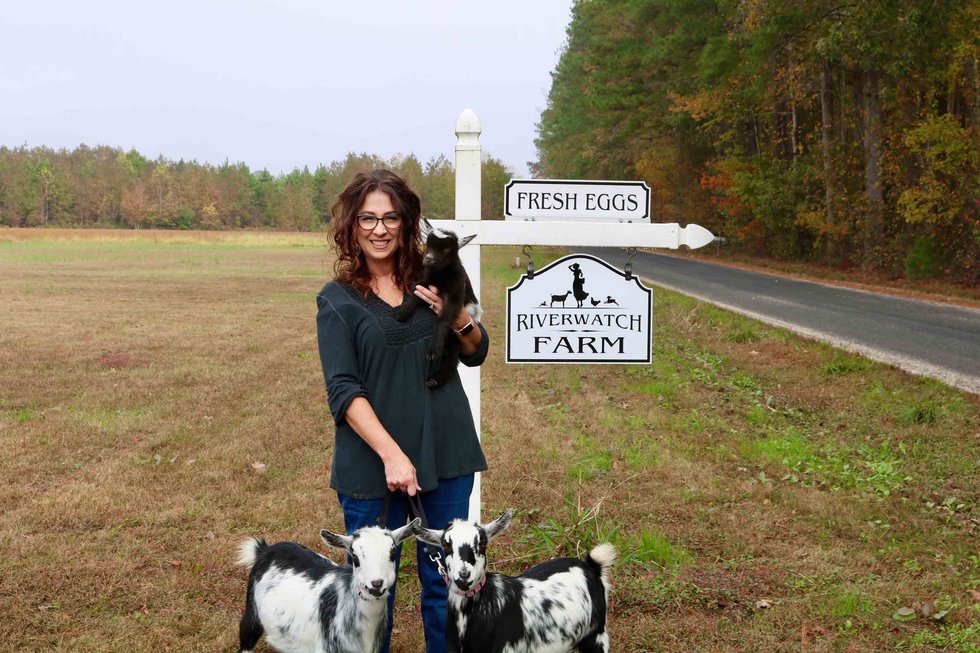At this West Point farm, visitors bottle feed the babies.

“I never realized they would have personalities so similar to dogs,” says Shelley Gholson of the Nigerian Dwarf goats she and her husband, Dave, tend at their Riverwatch Farm. “They make great companions and produce wonderful milk.”
The miniature goats supply nearby Bees Knees Farm & Creamery, where the milk—each goat produces one to two quarts per day—is used to make cheese and caramel. “The milk from a Nigerian Dwarf averages six percent butterfat; it’s sweet, creamy, and excellent for cheese making,” says Gholson, who compares it to half-and-half.
Along with Pygmy goats, Nigerian Dwarfs were brought to the U.S. from Africa in the 1930s. Increasingly popular, they’re now prized as pets and show goats. “You could not meet the demand for people wanting little farm animals,” Gholson says, citing Riverwatch’s ongoing waiting list for “bottle babies” under 12 weeks old.
Visitors looking for one-on-one goat time can book a Bottle Baby Bliss session. “You cuddle the baby goats and learn how to bottle feed them. There’s a whole science behind feeding ruminants,” she says, referencing the goats’ four-chambered stomachs. “People come back to do it again and again.”
Gholson did not always picture herself as a dairy farmer. “I wanted a horse,” she admits. Now, she happily milks the goats, assists in births, and clips hooves. The farm also sells goat milk for pets, fresh eggs, and welcomes B&B guests in their cottage, located—where else?—over the goat barn. RiverwatchGoats.com

This article originally appeared in the August 2022 issue.








